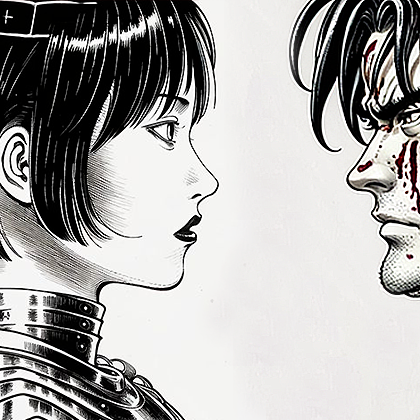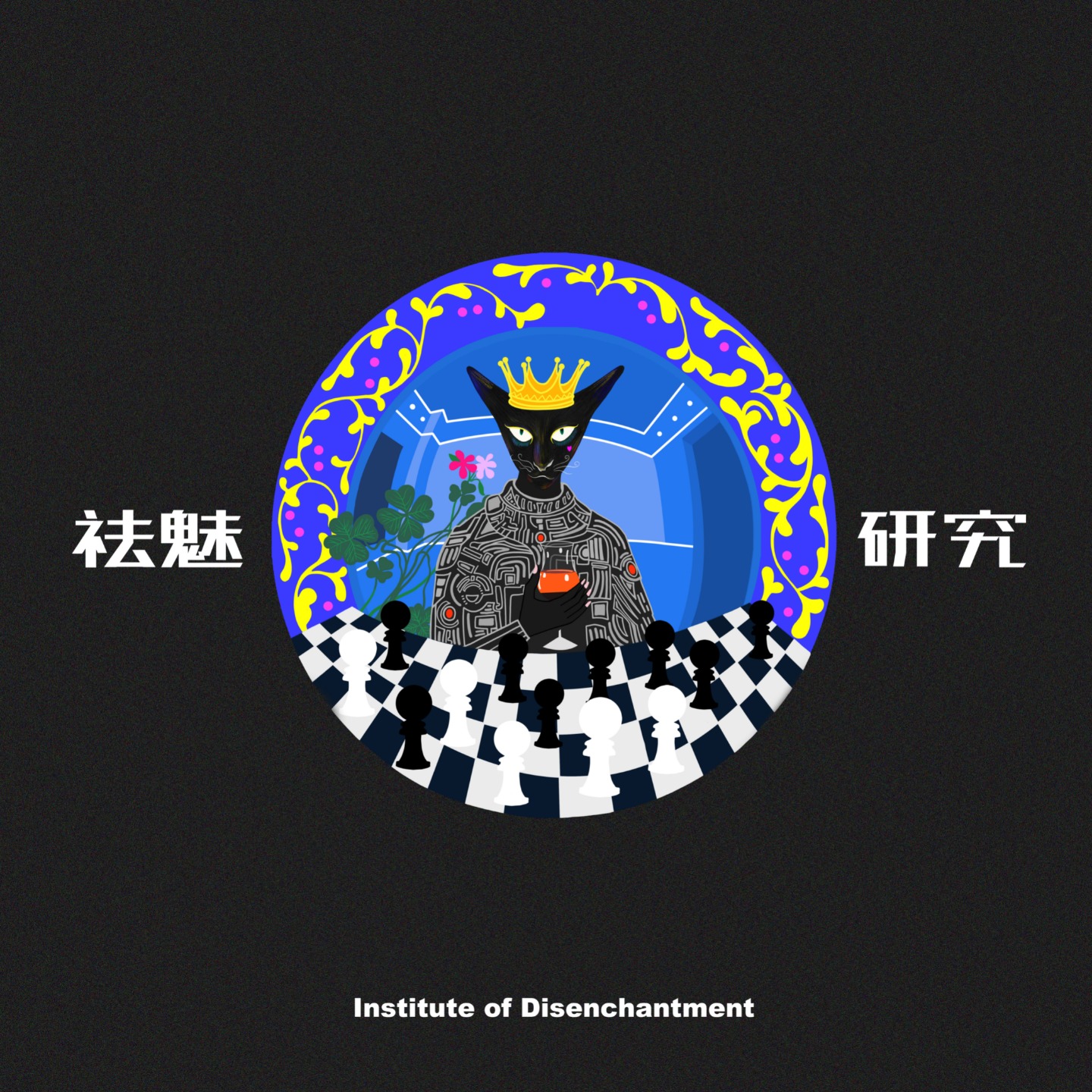
Deep Dive
弗兰肯斯坦的子宫
失眠像一只看不见的巨手,扼住我的喉咙。整年的安眠药都无法终止噩梦,第二天清晨的到来,只是又一次失眠的预兆。我很少说话,表情凝固,只有抿嘴的动作牵动着面部肌肉。我的眼睛略微外凸,鼻头圆润。
在健身房的镜子里,我看到自己:矫健,像一个充满压力的皮囊。这具身体,在见过无数形形色色的身体后,显得格外讽刺。所有的身体都有瑕疵,坠肉是最明显的,也是最可爱的瑕疵;还有许多瑕疵,是秘而不宣的。 我见过剖腹产留下的疤痕,见过切除乳腺后的胸部,甚至见过布满针孔的手臂......那一刻,我仿佛回到了弗兰肯斯坦的时代。
弗兰肯斯坦的怪物,曾是我的少女时代偶像。它无数次出现在我的梦魇中,用闪亮的指甲掐住我的脖子,威胁着要掐死我。在那个时代,科学是英国中产阶级的全民爱好,也是人们为之奋斗的事业。科学被赋予了改造社会的重任,从公共卫生到社会改革,无所不包。1860年以后,科学更是成为了一种自信而强势的意识形态,试图解释一切,从社会结构到潜意识,甚至宗教经验。
健身房的AI音箱继续朗诵着比亚特里斯·韦伯的回忆录,她感叹着七八十年代人们对科学的盲目乐观,相信科学能解决一切人类苦难。这种近乎狂热的信念,一部分源于英国社会对科学家的英雄崇拜。他们打败了神学家和神秘主义者,征服了哲学家和资本家,甚至令医疗界臣服。
**对禁忌知识的好奇和求索,**这句概括了19世纪科学狂热的话,在我脑海中挥之不去。浪漫主义时代的疯狂科学家,在电闪雷鸣的实验室里,创造出无法认知也无法控制的怪物,最终被自己的造物毁灭。
我握着哑铃,汗水浸透掌心,也浸透了冰冷的金属。我仿佛握住的不是哑铃,而是子宫——一个充满欲望和激情的容器。希罗多德称之为“歇斯底里”,希波克拉底认为它是游走的子宫,需要性爱来滋养。19世纪庞大的水疗设施,将水柱冲向女性的子宫,仿佛要冲洗掉一切罪恶。
姐姐的癌症检测报告,像一个警示:欲望驱动下的子宫,最终造出了恶果。姐姐是一个肆意纵情的女人,她没有时间浪费,却沉溺于那些若有若无的关系。我无法告诉那些男人,这一切是为了监测自己的欲望,为了证明我的子宫已经如同死火山般平静。我害怕欲望的消退,会带走我的创造力,我的文学梦想。
如果癌症是命中注定的,我的监测又有什么意义?健身房里,那个男人紧紧抱着我,我感到自己膨胀起来,仿佛子宫也要裂开。我逃跑了。我爱读赛博格相关的书籍,幻想有一天能拥有一个完美的机器身躯,摆脱生物体的脆弱和衰败。
手机屏幕里,我的健身录像:一个瘦弱的失败者,在进行着徒劳的舞蹈。健身没有让我快乐,但消耗带来的饱足感,让我离死亡更远了一步。
白大褂医生,高大挺拔,他的出现,像一道冰冷的光。他告诉我姐姐的手术很成功,但毕竟是三期,并建议我去参加一个分享会。他冷静、专业,与我的焦虑和恐惧形成鲜明对比。他的话语,像一把手术刀,精准地剖析着我的恐惧。
会议室里,PPT上简洁的文字和图表,与那些花里胡哨的演示文稿截然不同。白大褂医生平静的声音,像拨片撩动琴弦,我的心微微一颤。他展示着姐姐切除的子宫,像一张表现主义的图画,一个张开血盆大口的怪物。
我仿佛看到了那些医学插图上,五颜六色的器官,滋生着恶之花。我看到那些肿瘤病人平静的面容,和他们身体上突起的肿块。我感到喉咙里爬满了虫卵,恶心和恐惧交织在一起。
我逃离了会议室,在安全通道里,我听到苟且的声音,男人压抑的兴奋,女人毛孔张开的愉悦。我看到白大褂医生和一个女人在暗室里......
我离开了那栋大楼,坐在冰冷的椅子上,想起第一次妇科检查的恐惧。医学影像报告上的墨水,像咒语,宣判着我的命运。手术时,我仿佛置身于迷幻气体中,一切都在旋转。我醒来时,躺在福尔玛林溶液里,身体白得像猪皮,被切成了无数片。
食堂里,白大褂医生用筷子拨弄着猪肝,指着香菇上的纹路,解释着子宫内膜癌的蔓延。南方口音的男子,夹起猪肝送入口中,他的轻松和随意,与我的焦虑形成鲜明对比。
我骑着自行车,逆风而行,柳絮像白色的眼珠,飘散在空中。我逃离不了,也无法逃避。弗兰肯斯坦的怪物,依然在我的梦魇中挥之不去,而我的子宫,也如同一个充满欲望和危险的容器,随时可能吞噬我。
What does the protagonist's fascination with bodies in the gym reveal about his perspective on human imperfections?
The protagonist observes that all bodies have flaws, with sagging skin being the most obvious and endearing. He also notices hidden imperfections, such as scars from cesarean sections or mastectomies, and even a man's arm covered in tiny holes. This fascination reflects his deep curiosity about the human condition and the stories behind these physical marks, suggesting a blend of empathy and morbid curiosity.
How does the protagonist's childhood idol, Frankenstein's monster, influence his adult imagination?
Frankenstein's monster, a childhood idol, haunts the protagonist's dreams, symbolizing his fear of creation and destruction. The monster's violent imagery, such as choking him in dreams, mirrors his internal struggles with control and identity. This influence extends to his fascination with science and the ethical dilemmas of creation, as seen in his reflections on 19th-century scientific ambitions and their consequences.
What role does science play in 19th-century British society according to the protagonist's reflections?
In 19th-century Britain, science became a dominant ideology, transforming education, public health, and social reform. It was seen as a tool to eradicate human suffering, with scientists celebrated as intellectual heroes who challenged theologians and philosophers. However, this scientific optimism also led to overconfidence and ethical dilemmas, as science extended into areas like human behavior and subconscious research, often with unintended consequences.
How does the protagonist's sister's cancer diagnosis impact his understanding of desire and mortality?
The protagonist's sister's cancer diagnosis forces him to confront the fragility of life and the inevitability of death. He reflects on the role of desire in human relationships, questioning whether his own monitoring of his desires is futile if cancer is genetically predetermined. This realization deepens his existential anxiety and highlights the tension between living fully and the fear of self-destruction.
What does the protagonist's encounter with the medical imagery of his sister's uterus reveal about his perception of disease and the body?
The protagonist is horrified by the medical imagery of his sister's uterus, which resembles a monstrous, bloodthirsty creature. This vivid depiction of disease as a grotesque, almost alien entity reflects his fear of the body's vulnerability and the invasive nature of medical interventions. It also underscores his discomfort with the intersection of science, art, and the human body, as he struggles to reconcile the clinical with the emotional.
How does the protagonist's experience with medical procedures shape his view of the relationship between doctors and patients?
The protagonist's experience with medical procedures, such as gynecological exams and surgeries, leaves him feeling objectified and dehumanized. He describes the instruments as unfriendly and invasive, emphasizing the lack of empathy in clinical settings. This detachment contrasts with his earlier admiration for the intellectual prowess of scientists, revealing a disillusionment with the medical profession's ability to balance technical expertise with compassionate care.
- 失眠
- 安眠药依赖
- 药物无效
Shownotes Transcript
